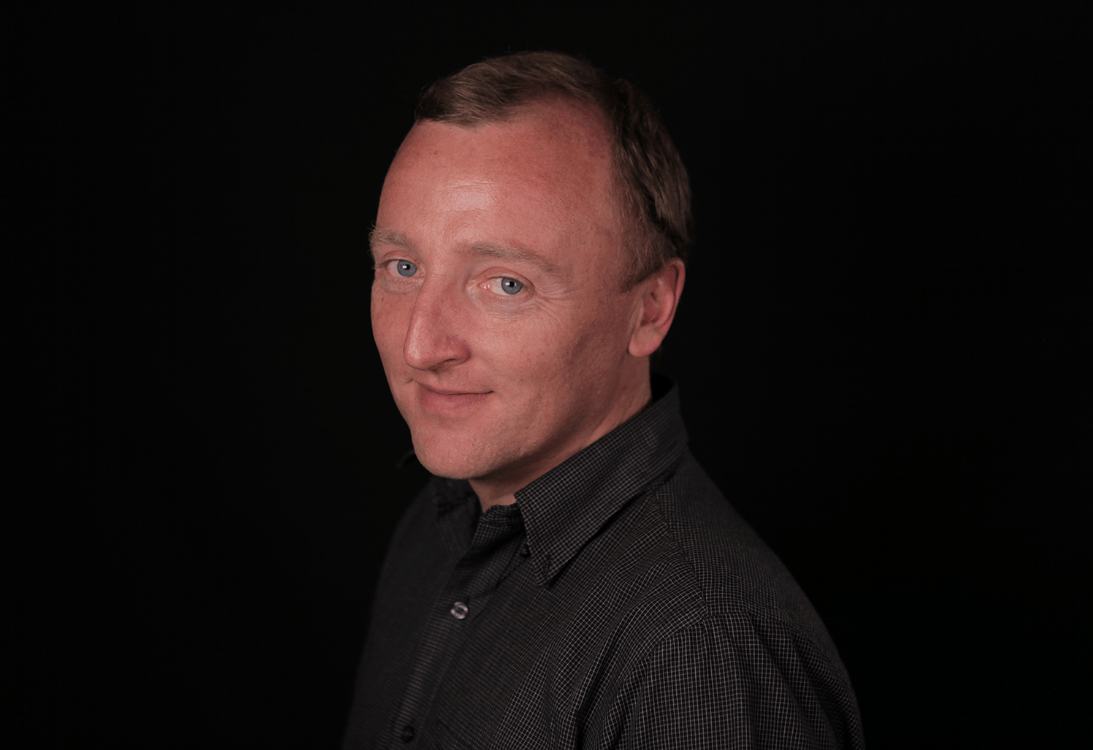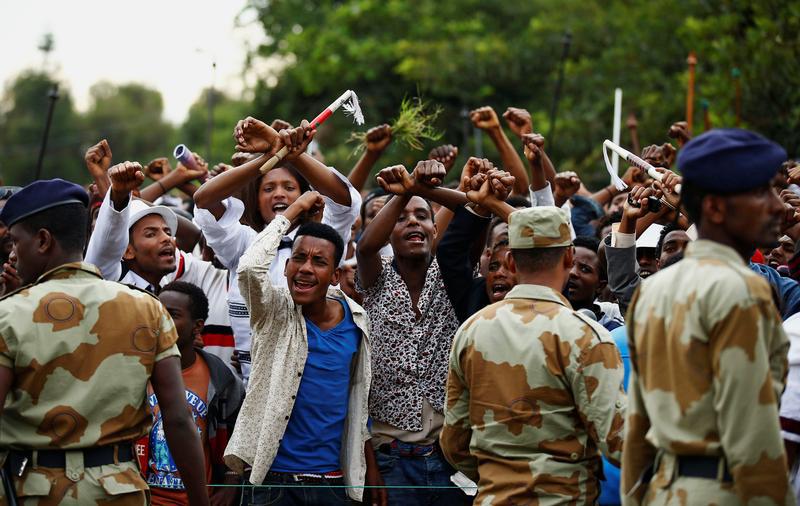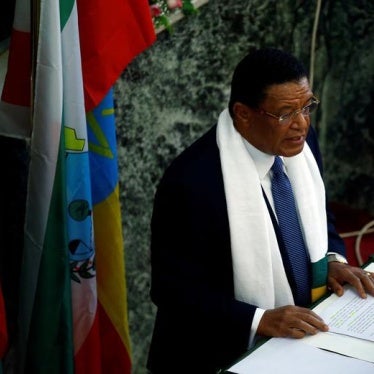Monday, May 29, 2017
#OromoProtests
Friday, May 19, 2017
#Oromoprotests
Ethiopia must respect rights, open democratic space – 14 US Senators
Abdur Rahman Alfa Shaban with US SENATE 8 hours ago
Fourteen members of the United States Senate have through a bipartisan resolution jointly called for the Ethiopia government to respect the rights of opponents and to end all forms of political persecution.
Senators Ben Cardin (Democrat, Maryland) and Marco Rubio (Republican, Florida) were the main sponsors of the bill. They also called for a credible accounting of the excesses of the security forces during massive anti-government protests that hit the country for the better part of last year.
Ethiopia is currently under a state of emergency that was imposed in October 2016 to curb the wave of protests. It was extended in April despite the government saying that peace had returned.
The fact that we have partnered with the Ethiopian government on counter-terrorism does not mean that we will stay silent when it abuses its own people.
The United Nations and the European Union requested independent investigations into the protest deaths but Addis Ababa flatly refused saying it was capable of such a probe. The country’s rights body recently released a report that said over 660 people died during the protests.
It is not the first time that US top officials are impressing on the Ethiopian authorities to open up the democratic space. The main ethnic groups of Amhara and Oromo continually protest marginalization in the political space is dominated by the minority Tigray ethnic group.
The Senators while admitting that the US partners with Ethiopia especially in the area of counter-terrorism, insisted that that was not enough grounds for rights to be abused and for democratic space to continue to shrink as is currently the case.
What Senator Cardin said:
“The Ethiopian government must make progress on respecting human rights and democratic freedoms. I am deeply troubled by the arrest and ongoing detention of a number of prominent opposition political figures.
‘‘The fact that we have partnered with the Ethiopian government on counter-terrorism does not mean that we will stay silent when it abuses its own people,” said Senator Cardin, ranking member of the Senate Foreign Relations Committee.
What Senator Rubio said:
“On the contrary, our partnership means that we must speak out when innocent people are detained, and laws are used to stifle legitimate political dissent.”
“As the Ethiopian government continues to stall on making progress on human rights and democratic reform, it is critical that the United States remains vocal in condemning Ethiopia’s human rights abuses against its own people,” said Senator Rubio, chairman of the Foreign Relations subcommittee on human rights and civilian security.
“I will continue to work with my colleagues in the Senate to urge the Ethiopian government to respect the rule of law and prioritize human rights and political reforms,” he added.
14 cosponsors of the resolution
The other colleagues who joined them as original cosponsors included: Senators Thom Tillis (R-N.C.), Ron Wyden (D-Ore.), Dick Durbin (D-Ill.), John Cornyn (R-Texas), Debbie Stabenow (D-Mich.), Chris Coons (D-Del.),
The remaining were: Cory Gardner (R-Colo.), Cory Booker (D-N.J.), Sherrod Brown (D-Ohio), Al Franken (D-Minn.), Chris Van Hollen (D-Md.), and Jeff Merkley (D-Ore.)
More AboutETHIOPIAPROTESTS IN ETHIOPIASENATOR
USAPOLITICAL PRISONERHUMAN RIGHTS
RELATED ARTICLES
US issues travel alert for Ethiopia's Gondar zone following explosions
28/04 - 12:18
Ethiopia ready for greater cooperation with Trump government - PM
23/02 - 14:31
Ethiopia: US commits to increased dialogue on governance and rights issues
19/12 - 09:21
FROM THE SAME COUNTRY
Ethiopia reports huge revenue in power supply over last 10 months
3 hours ago
Social media outrage as Ethiopian activist faces jail over 2015 Facebook post
Friday 19/05/2017
Thursday, May 18, 2017
Human Right watch
May 18, 2017 3:17PM EDT Dispatches
European Parliament Demands Investigation Into Ethiopia Killings
Resolution Calls for Urgent UN Inquiry Into Protester Deaths and Detention
Senior Researcher, Horn of Africa@felixhorne1
Show More Services
Demonstrators chant slogans while flashing the Oromo protest gesture during Irreecha, the thanksgiving festival of the Oromo people, in Bishoftu town, Oromia region, Ethiopia, October 2, 2016.
© 2016 Reuters
Today, the European Parliament passed a resolution calling for a United Nations-led independent investigation into the killing of protesters in Ethiopia. Between November 2015 and October 2016, Ethiopian security forces killed hundreds of protesters, and detained tens of thousands. An overly restrictive state of emergency has been in place for the past seven months, and tens of thousands more people have been detained under it. Today’s resolution echoes a previous European Union parliamentary resolution, resolutions by other countries, and last month’s request by the UN’s top human rights chief for access to investigate the abuses.
Ethiopia’s government has always rejected outside scrutiny of its horrific rights record, insisting that it can investigate itself. Yet it has conspicuously failed to do so. Past investigations by the Ethiopian Human Rights Commission (EHRC) have not met basic standards of impartiality, including its June 2016 report into abuses during the protests’ first six months. In April 2017, the EHRC acknowledged that 669 people were killed in an oral report to parliament, but found that security forces had used excessive force in just a few situations. This stands in stark contrast to what Human Rights Watch and other organizations have found, drawing on evidence that includes a wealth of video and photographic material. The EHRC hasn’t publicly released a version of their findings, so it’s impossible to assess their methodology or learn how they reached their conclusions.
International experts having access to areas where protests occurred and to people still in detention are important first steps towards meaningful investigations. But there are other obstacles too, like victims and witnesses being too afraid to speak out about government abuses. Thousands of Ethiopians have fled the country since the protests, seeking asylum in bordering countries. They too should be part of investigations into what happened, from locations where they may be more free to speak without fear.
Today’s resolution specifically calls on Federica Mogherini, the EU’s top diplomat, to “mobilise EU Member States” to urgently pursue the setting up of the UN-led international inquiry, and they can take the first step towards this at the upcoming Human Rights Council session next month in Geneva.
It’s hoped that implementing today’s timely resolution can help address the pervasive culture of impunity in Ethiopia. The resolution also reiterates the EU’s recognition of the importance of justice to ensure Ethiopia’s long-term stability. To the many victims of Ethiopia’s brutality, a UN-led inquiry could at least begin to answer pleas for justice that too often have gone unheard.
Show More Services
Region / Country
Topic
United Nations Human Rights Council
MORE READING
April 21, 2017 Commentary
Fear of Investigation: What Does Ethiopia’s Government Have to Hide?
Senior Researcher, Horn of Africa
Published In: Addis Standard
March 16, 2017 Dispatches
Ethiopia Lifts Some State of Emergency Restrictions
Senior Researcher, Horn of Africa
Connect With Us
Corrections Privacy Policy Site Map
© 2017 Human Rights Watch
Human Rights Watch | 350 Fifth Avenue, 34th Floor| New York, NY 10118-3299 USA | t 1.212.290.4700
Tuesday, May 16, 2017
No Justice in Ethiopia
Africa/Ethiopia/Law & Order/Protests/Terrorism Charges
BREAKING NEWS: ETHIOPIA COURT FOUND FORMER SENIOR OPPOSITION FIGURE YONATAN TESFAYE GUILTY OF TERRORISM CHARGES
addisstandard / May 16, 2017/ 4.8k
Mahlet Fasil
Addis Abeba, May 16, 2017 – The Federal High court fourth criminal bench has today passed a guilty verdict against Yonatan Tesfaye, former opposition Blue Party public relations head.
Yonatan was first arrested in December 2015, barely a month after the first wave of a year-long #Oromoprotests erupted. He was held incommunicado during the pre-trial weeks and was subsequently charged in May 2016 under Ethiopia’s infamous anti-terrorism proclamation (ATP).
Yonatan has been defending the charges against him since then. The charges of ‘encouragement of terrorism’, stipulated under article six of the ATP, were largely drawn from his Facebook activism during the protests. According to article six of the ATP, “Whosoever publishes or causes the publication of a statement that is likely to be understood by some or all of the members of the public to whom it is published as a direct or indirect encouragement or other inducements to them to the commission or preparation or instigation of an act of terrorism…” is subject to terrorism charges.
He had presented several defense witnesses, including prominent opposition party leaders from the Oromo Federalist Congress (OFC), Bekele Gerba and Dr. Merera Gudina, who are in jail at the time of their testimony fighting charges of terrorism and multiple criminal charges respectively, and journalistEskendir Nega, who is serving 18 years in prison for terrorism-related charges.
In addition, Yonatan’s close friend Ephrem Tayachew, his father Tesfaye Regassa, and his sister Gedamnesh Tesfaye as well as academicians from the Addis Abeba University (AAU), including the outspoken philosopher Dr. Dagnachew Assefa and Dr. Yaqob Hailemariam have all appeared in court to testify in defense of Yonatan’s innocence.
However, this morning the court in its verdict overruled all defense testimonials by upholding prosecutors’ accusations. Yonatan’s sentencing is adjourned to May 25.
Yonatan could face from ten to 20 years rigorous prison term in a federal prison; however, the court ruled that he can appeal for a minimum sentence.
***According to new information Addis Standard received, after the sentencing is handed over, Yonatan’s defense team, led by his lawyer Shibiru Belete, is planning to object to the verdict and appeal for the charges to be reduced to criminal charges.
Cover Photo: Yonatan Tesfaye
Photo credit: His Facebook
Related
At last, federal high court begins hearing of defense witness testimonials on Yonatan Tesfaye’s terrorism chargesJanuary 5, 2017In "Africa"
Prison police brings Bekele Gerba et.al to court barefoot, wearing only shorts and t-shirtsJune 3, 2016In "Africa"
News - Ethiopia court sentences university students to various terms in jailNovember 18, 2016In "Addis Abeba Integrated Master Plan"
PREVIOUS POST
NEWS: HIGH PROFILE TERRORISM CHARGE AGAINST SENIOR OFC OFFICIALS, OTHERS KEEPS DRAGGING AS COURT ONCE AGAIN ADJOURNED KEY VERDICT
NEXT POST
THIS IS THE MOST RECENT STORY.
LATEST FROM THE GLOBAL MEDIA
Awash Insurance Company S.C. (AIC) is one of the first few pioneer private insurance companies in EthiopiaVisit
Awash Insurance Company S.C. (AIC) is one of the first few pioneer private insurance companies in EthiopiaVisit
Elizabeth Grant in 1958 in London, England it was most unusual for women to run companies.Get into your Skin
Leopard Beach Resort - Special offers this season January - April 2016 at Dianis ' Finest resortVisit
EDITOR’S PICK
#StateOfEmergency/Africa/Ethiopia/Protests
NEWS: ETHIOPIAN PARLIAMENT EXTENDS STATE OF EMERGENCY BY FOUR MORE MONTHS
addisstandard / March 30, 2017
Africa/Ethiopia/Law & Order/Protests/Terrorism Charges
Africa/Ethiopia/Law & Order/Protests
Africa/Art Review/Ethiopia/Ethiopian Muslims/Human Rights
BOOK REVIEW: ‘PHARAOH: THE SYMBOL OF DICTATORS’: BY AHMEDIN JEBEL
Africa/Commentary/Ethiopia/Human Rights/Protests
COMMENTARY: THE CHIEF COMMISSIONER’S VISIT AND ITS FALLOUT
Africa/Ethiopia/Human Rights/Op/Ed/Protests
OP-ED: FEAR OF INVESTIGATION: WHAT DOES ETHIOPIA’S GOVERNMENT HAVE TO HIDE?
addisstandard / April 21, 2017
#StateOfEmergency/Africa/Ethiopia/Human Rights/Protests
addisstandard / April 18, 2017
#StateOfEmergency/Africa/Ethiopia/Press Freedom/Protests
addisstandard / April 12, 2017
#StateOfEmergency/Africa/Analysis/Ethiopia/Oromia Regional State/Somali Regional State
addisstandard / April 10, 2017
Africa/Ethiopia/Freedom Of The Press/ZoneNine
#StateOfEmergency/Africa/Ethiopia/Protests
NEWS: ETHIOPIAN PARLIAMENT EXTENDS STATE OF EMERGENCY BY FOUR MORE MONTHS
addisstandard / March 30, 2017
Africa/Ethiopia/Law & Order/Protests/Terrorism Charges
FOLLOW US
22.2k
Followers
19.4k
Fans
ABOUT ADDIS STANDARD
Addis Standard is a monthly English private magazine published and distributed by JAKENN Publishing P.L.C. It is registered with the Ministry of Trade and Industry of the Federal Democratic Republic of Ethiopia under license number 1552/2003.
MAILING LIST
SUBSCRIBE TO OUR EMAIL NEWSLETTER.
CONTACT
Address: Leul Taz Building 3rd Floor Off No. 302 | Opposite CMC Compound | Addis Ababa, Ethiopia.
Phone: +251 118 951 323 / 116 609 329
Mobile: +251 911 860 307 / 922 346 654
E-mail: info@addisstandard.com / addisstandard@gmail.com
Uneasy peace and simmering Conflict. The Ethiopian town where there flagg fly
Uneasy peace and simmering conflict: the Ethiopian town where three flags fly
Fresh tension in a disputed area has reopened old wounds between the Oromia and Somali states, as ethnic federalism fails to contain violence
Global development is supported by
Tom Gardner in Moyale
Tuesday 16 May 2017 16.00 AESTLast modified on Tuesday 16 May 2017 19.44 AEST
Three different flags flutter in the breeze along the road that runs through Moyale in southern Ethiopia. The first is green, yellow and red: the colours of the Ethiopian federal state. Then, on the side of the road: red, black and white, with a tree in the centre, the colours of the Oromo. And a third: the green, white and red, with a camel in one corner, of Somali state.
Moyale, deep in Ethiopia’s dusty south-eastern drylands and straddling the border with Kenya, is split sharply down the middle. The fresh tarmac of the road that divides it marks the long-contested frontier between Oromia and Somali regional states.
Analysis How long can Ethiopia's state of emergency keep the lid on anger?
Read more
These flags fly side-by-side in Moyale as a testament to the success of Ethiopia’s distinct model of ethnically based federalism, established in 1994.
Advertisement
But it is also a measure of its failings: Moyale has two separate administrations; segregated schools; parallel court systems; rivalrous police forces, and adversarial local militia. More than 20 years after ethnic federalism was introduced, tensions between the two sides – Borana Oromo and Garri Somalis – are as fraught as ever.
“There is a serious problem emerging,” said Ibrahim, an elderly Somali man in the courtyard of a hotel on the Oromo side of the road. As a clan elder, he has freedom to sit in places that younger Garri men would avoid, he said. Ill feeling between the two communities stretches back decades, but recent events have reopened old wounds.
A clash between two armed groups near Moyale in April resulted in tit-for-tat killings, with at least one Garri and one Borana reported dead (both groups claim more), and injuries on either side. Locals reported similar deadly flare-ups early this year.
Yet violence in Moyale has remained fairly contained, in part due to the town’s bloody recent past. In 2012, fighting over land between the pastoralists in the surrounding area led to 18 deaths and forced tens of thousands of Moyale’s residents to flee across the border into Kenya.
Memory of this has helped to maintain the peace since, and a community accord struck between clan elders has kept the younger generation in check. But with the latest outbreak of what he calls “revenge killings”, Ibrahim said he was worried that the accord could be broken.
Ethnic tensions here are part of a wider confrontation that stretches all along the border from Moyale in the south to Dire Dawa, some 1,000km (620 miles) north. Ethiopia’s government, the Ethiopian People’s Revolutionary Democratic Front (EPRDF), imposed a state-of-emergency in October following widespread protests against the regime in Addis Ababa, the capital, which resulted in at least 669 deaths.
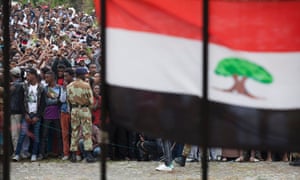
Members of the Oromo community gather in Bishoftu, Oromia, in October 2016, as a series of protests erupted in the capital, Addis Ababa. Photograph: Zacharias Abubeker/AFP/Getty Images
But while stability returned to the rest of the country in the following months, the Somali-Oromo regional border saw an outburst of violence on a scale that many said was unprecedented. According to residents in Oromo districts along there, violent incursions by Somali militia began in December and continued sporadically over the next three months. Human Rights Watch, which received reports of dozens of casualties, said these clashes were of a different order to the pastoralist struggles over water points and farmland that have long afflicted the region in times of drought.
Instead, the clashes involved heavily armed men on both sides in locations all along the border. Schools were looted and civil servants shot in their offices, said Fekadu Adugna, an academic at Addis Ababa University, who specialises in Oromo-Somali relations.
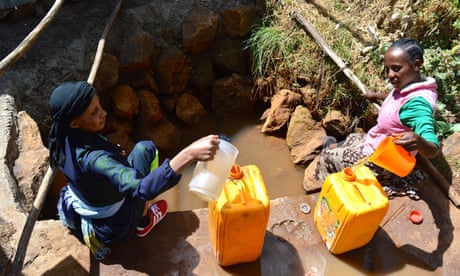
The Ethiopian boomtown that welcomes water firms but leaves locals thirsty
Read more
Residents on the Oromo side also reported widespread rapes and said they had found ID cards belonging to members of the controversial Somali special police, know as the “Liyu”, among the remains of the dead. The worst of the violence took place in the area around Negele, another frontier town about 500km from Moyale.
There has been no official investigation into the events and there are no exact figures for the numbers killed. According to Ibrahim Adam, a conflict-resolution field officer for Igad, an east African regional bloc, more than 100 people died and thousands were displaced in February and March in the Negele area alone. Oromo activists have claimed much higher numbers.
Few now dare take the road from Moyale to Negele, which runs through both Garri and Borona districts. Residents of Moyale claim that young men at roadblocks have been threatening travellers from a different ethnic group.
An indication of the scale of the conflict came in March when the prime minister, Hailemariam Desalegn, referred to it in a speech to parliament. For the first time, it was framed not as a dispute over resources but as a battle between two regional militias and police forces. “The problems have no relation to ethnic conflicts,” Desalegn said. “It is our lower political leadership that commands these actions.”
This surprisingly candid explanation tallies with those given by Moyale residents, who see the conflict as one waged by local officials with expansionist agendas. Both regional governments have claimed contested territories in the past couple of years. “This is no longer just between two communities but between two governments,” said Fugicha, a Borana. “It serves their interests.”
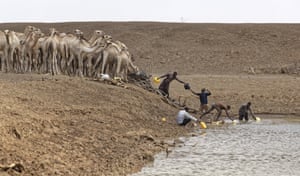
Camel herders collect water for their animals at one of the few watering holes left in the drought-affected region near Moyale on the Ethiopian border. Photograph: Ben Curtis/AP
Last month, the federal government stepped in to administer a peace agreement between the two sides. It promises to enforce the border that was demarcated following a referendum in 2004, and settle the status of Moyale, which was excluded from that referendum because its ethnic politics were deemed too complex.
Moyale’s Oromo, in particular, have expressed concern about the outcome of the peace agreement. Rumours of a second referendum, and Somali encroachment in a town regarded as historically Oromo, were behind last month’s revenge killings, they said.
Somalis, on the other hand, have pointed to the assertiveness of the new Oromo regional government that came to power in the wake of last year’s protests. It recently issued an extensive list of claims on Addis Ababa, which activists regard as rightfully Oromo too. “The Oromo have never accepted the division of Moyale,” said Ibrahim, the clan elder.
Both sides are pessimistic. One widespread theory is that the federal government’s failure to step in early to end the violence was politically motivated. “People here think the TPLF [the Tigrayan ethnically based political party] initiated this to weaken Oromo resistance to the central government,” said Fugicha. Others have suggested that flashes of ethnic violence suit a regime that defends its heavy-handedness as necessary to prevent the country unravelling.
Whatever the truth, the wider problem is more intractable. Ethiopia’s ethnic-federal model has helped ensure the recognition of minority groups – and kept the peace, many say – but it has also aggravated regional tensions by binding once-fluid ethnic identity to administrative control over territory.
“Federalism brought this problem,” said Adam, the Igad officer. “People now think no one else can live in their area.”
Topics
back to top
© 2017 Guardian News and Media Limited or its affiliated companies. All rights reserved.
